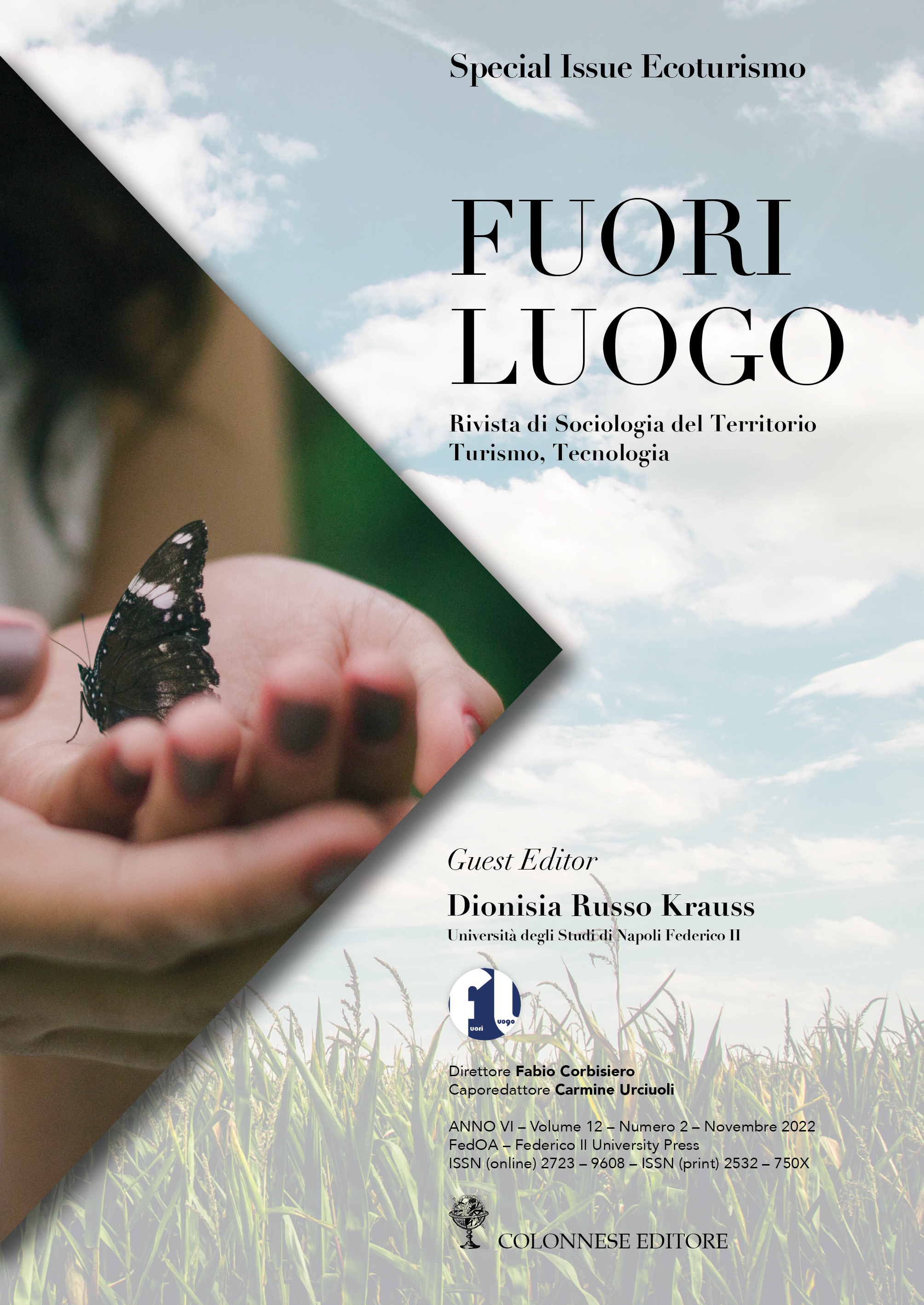How to Learn to Be a Sustainable Tourist. An Ethnographic Approach to Marine Protected Areas
Abstract
Marine Protected Areas (MPAs) represent both a normative and social tool for the conservation of marine habitats and species. This has resulted in the declaration of many MPAs around the world. These marine areas perform three key functions: preserving marine biodiversity, contributing to the local economy, supporting sustainable tourism enjoyment processes. In Italy, MPAs are created both for the preservation of naturalistic landscapes and as an environmental education device. This essay considers the case of the Underwater Marine Park of Gaiola in Naples by exploring, through the ethnographic approach, the socio-cultural implications that shape a relationship between visitors, environmental protection and tourist practice.
Downloads
Copyright (c) 2022 Fabio Corbisiero

This work is licensed under a Creative Commons Attribution 4.0 International License.




